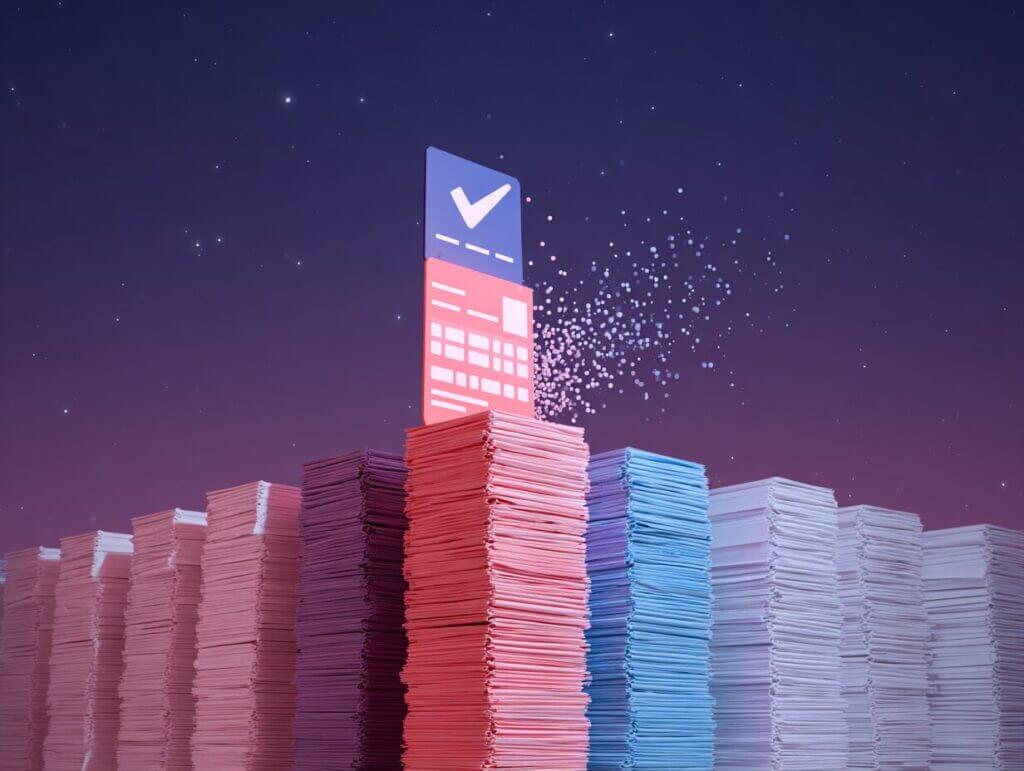Trending Now: Hottest Topics In E&C and HR


Full Episode Available
WATCH ON-DEMANDThe convergence of AI advancement, whistleblower incentives, and volatile regulatory environments has created a perfect storm that will either revolutionize your compliance program or leave it obsolete within 18 months. This quarterly update explores critical developments in Department of Justice enforcement policies, the expanding role of whistleblowers in corporate accountability, and the transformative impact of artificial intelligence on compliance programs. Industry leaders Tom Fox, Karen Moore, and Nick Gallo provide actionable insights on navigating these changes while building more resilient and proactive compliance frameworks that serve both regulatory requirements and business objectives.
This episode of The Ethicsverse presents a comprehensive analysis of contemporary challenges and opportunities facing ethics and compliance professionals in an era of unprecedented regulatory evolution and technological transformation. The discussion examines the Department of Justice’s revised corporate enforcement policy, which significantly expands incentives for voluntary self-disclosure through guaranteed declinations for companies that investigate, remediate, and self-report misconduct. The speakers analyze the implications of enhanced whistleblower programs, including the strategic use of the False Claims Act and its potential impact on corporate culture and internal reporting mechanisms. A substantial portion of the discourse addresses the integration of artificial intelligence into compliance operations, exploring both its potential as a force multiplier for risk management and the novel compliance challenges it presents. The analysis incorporates practical considerations around tariff volatility, energy consumption in AI deployment, and the necessity of cross-functional collaboration in managing emerging risks. Throughout, the speakers emphasize the critical importance of compliance professionals positioning themselves as strategic business partners who can leverage regulatory changes and technological capabilities to drive organizational value while maintaining ethical integrity.
- Nick Gallo, Chief Servant & Co-CEO, Ethico
- Thomas Fox, Founder & Creator, Compliance Podcast Network
- Karen Moore, Principal, Sounding Board Compliance LLC
DOJ’s Expanded Carrot: The New Self-Disclosure Paradigm
- The DOJ now guarantees declinations for companies that self-disclose, investigate, and remediate misconduct, even when senior executives are involved in the wrongdoing.
- Companies with aggravating circumstances can receive penalty reductions if they cooperate fully with the investigation and remediation process.
- The new policy provides flowcharts and clear guidance that give compliance teams powerful tools to advocate for transparency and proactive risk management within their organizations.
AI as a Force Multiplier for HR Compliance and Risk Management
- Leading HR departments are discovering that AI technology amplifies their compliance capabilities without replacing the human judgment critical for employee relations and workplace investigations.
- Just as a chef maintains quality control while delegating prep work, HR professionals and compliance officers must maintain oversight of AI-generated outputs while leveraging automation for routine compliance tasks like policy updates, training assignments, and regulatory tracking.
- This strategic approach enables ethics and compliance teams to focus on high-risk investigations, complex employee relations issues, and building cultures of integrity that require uniquely human skills.
Whistleblower Evolution: From Internal Reports to External Rewards
- Research shows that a majority of external whistleblowers attempt internal reporting first, making robust speak-up cultures critical for capturing risk intelligence before it leaves the organization.
- The expanded application of the False Claims Act to customs and tariffs creates new exposure through qui tam actions that offer substantial monetary rewards to whistleblowers.
- Organizations must enhance their monitoring capabilities and response protocols to address risk intelligence effectively before it reaches external enforcement channels.
AI Integration: From Terrifying Technology to Essential Tool
- Studies reveal that most employees already use AI tools, often against company policies, making prohibition strategies both ineffective and counterproductive for organizations.
- Organizations need to develop governance frameworks that channel AI benefits while managing risks related to hallucinations, privacy breaches, and copyright violations.
- Compliance professionals should position AI as a first-draft research and analytical assistant that enhances rather than replaces human judgment and decision-making.
Volatility Management Through Compliance Innovation
- Rapid changes in tariffs, regulations, and enforcement priorities demand that compliance teams develop real-time risk assessment and response capabilities.
- AI and advanced analytics enable compliance teams to shift from reactive firefighting to proactive risk management strategies that anticipate challenges.
- Compliance professionals must develop technical competencies in emerging technologies while maintaining their core expertise in ethics and regulatory requirements.
Monitor Mitigation: Building Programs That Prevent Oversight
- The DOJ’s return to pre-2018 monitor policies makes appointments significantly less likely for companies that demonstrate strong compliance programs.
- An effective compliance infrastructure serves as a shield against costly and intrusive monitorship requirements that can last for years.
- This policy shift creates leverage for compliance officers to secure resources and executive support for program enhancements that demonstrate organizational commitment.
Energy and ESG: The Hidden Costs of Technological Progress
- AI integration brings significant environmental considerations through massive energy consumption requirements and increased carbon footprint implications.
- Organizations must assess both direct energy usage from their own AI deployments and third-party impacts throughout their supply chains.
- The convergence of compliance, technology, and sustainability creates new opportunities for compliance professionals to demonstrate value through holistic risk management.
Third-Party Risk in the AI Era: Managing the Unknown
- “Stealth AI” embedded in vendor tools and services creates compliance challenges that remain invisible to traditional vendor risk assessment approaches.
- Due diligence processes must specifically evaluate third-party AI usage and its potential impact on data privacy, accuracy, and regulatory compliance.
- This new risk landscape requires updated assessment methodologies and close collaboration between compliance, procurement, and IT functions.
Cultural Transformation: From Compliance Theater to Business Partnership
- Regulatory changes and technological advances create unprecedented opportunities to reposition compliance functions as strategic business enablers rather than cost centers.
- Success requires compliance teams to embrace data-driven decision-making, cross-functional collaboration, and proactive risk identification methodologies.
- Compliance leaders should leverage current events and regulatory updates as catalysts for organizational conversations about risk appetite and ethical culture.
False Claims Act Expansion: New Frontiers in Enforcement Risk
- The aggressive application of the False Claims Act to customs duties and tariff classifications significantly expands enforcement risk amid complex supply chains and rapid sourcing changes.
- Qui tam relators can now pursue claims without insider knowledge, dramatically increasing corporate exposure from inadvertent classification or valuation errors.
- Companies must enhance their import compliance programs and monitoring systems to detect and correct potential violations before they attract whistleblower attention.
Closing Summary
The current moment represents both unprecedented challenge and extraordinary opportunity for ethics and compliance professionals. The expansion of self-disclosure incentives, coupled with technological advances and increasing regulatory complexity, demands that compliance functions evolve from reactive oversight to proactive business partnership. Organizations that successfully navigate this transition – embracing AI while managing its risks, leveraging regulatory incentives while maintaining ethical integrity, and building cultures of transparency while protecting legitimate business interests – will find themselves not merely compliant but competitively advantaged. The key lies in viewing compliance not as a cost center but as a strategic capability that enables sustainable growth in an era of constant change.





































